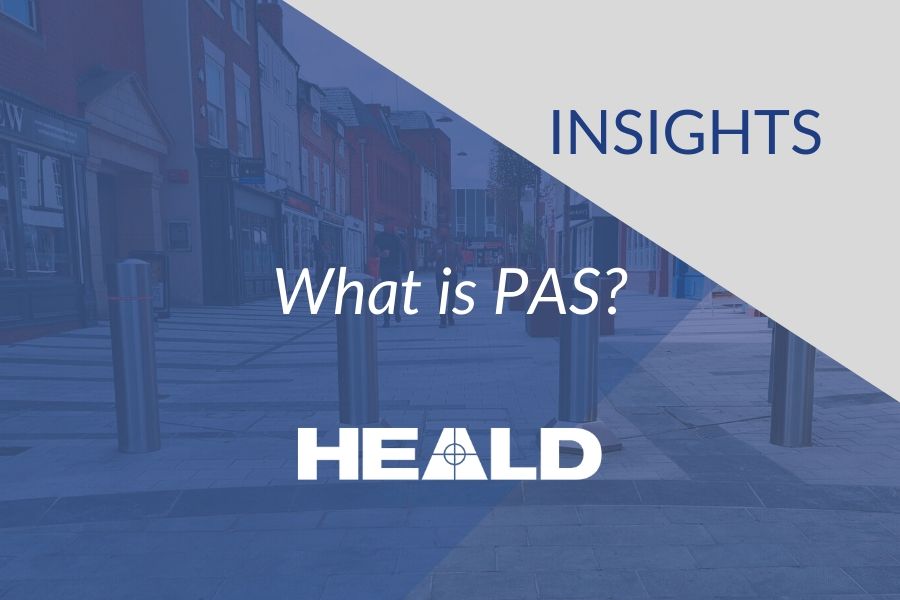Need to speak to us? Here’s our most useful number and email addresses
Sales: sales@heald.uk.com
General information: info@heald.uk.com
Marketing: marketing@heald.uk.com
Need to speak to us? Here’s our most useful number and email addresses
Sales: sales@heald.uk.com
General information: info@heald.uk.com
Marketing: marketing@heald.uk.com

If you’re looking to improve perimeter security by installing security bollards, road blockers or vehicle barriers you’re likely to come across the term ‘PAS’, but what does it mean?
Industry abbreviations and terms can sometimes be confusing and difficult to navigate, however, understanding them can help to ensure that you chose security products that are fit for purpose. Here, we explore what a PAS is and how they help to ensure that you’re receiving reliable security products that meet the relevant security standards.
PAS stands for Publicly Available Specification - a fast-track standardisation document. It is the result of an expert consulting service from the British Standards Institution (BSI), the national standards body of the United Kingdom.
A PAS outlines industry best practice, for either a product, service or process. They are developed by a steering group of experts and stakeholders. A PAS can provide a product specification, codes of practice, guidelines and vocabularies, as well as specify assessment benchmarks for product testing, such as PAS 68 that gives impact test specifications for vehicle security barrier systems.
In the security industry, transparency and reliability are vital.
Perimeter security products are typically installed in busy environments such as city centres, airports, holiday parks or near iconic landmarks and buildings – anywhere that attracts a high footfall. Perimeter security systems are designed to protect against ram raids, safeguard pedestrians from terrorist vehicle attacks and defend buildings from crash impact damage.
The need for such products has risen in recent years. In the UK, we have seen a rise in hostile vehicle attacks and it’s crucial that perimeter security systems are crash tested to a standard to ensure that they offer the best protection. By testing security bollards, barriers and road blockers to a universally recognised standard provide a benchmark to ensure that you’re receiving reliable, robust security solutions.
Crash-test ratings also provide a helpful guide for you to ensure that you’re selecting the most suitable bollard or barrier for its purpose. For example, if you need bollards for traffic management, rather than to protect a highly pedestrianised area from hostile vehicle attacks, a solution with a lower test rating may be a better option. Providing impact test ratings aims to help organisations who would like assurance that vehicle security bollards and barriers will provide the impact resistance that they need.
If you need any advice on impact tested security products, please contact our friendly experts to discuss your requirements.
READ MORE: If you found this blog useful, you may also be interested to read about the crash test standard IWA 14.

